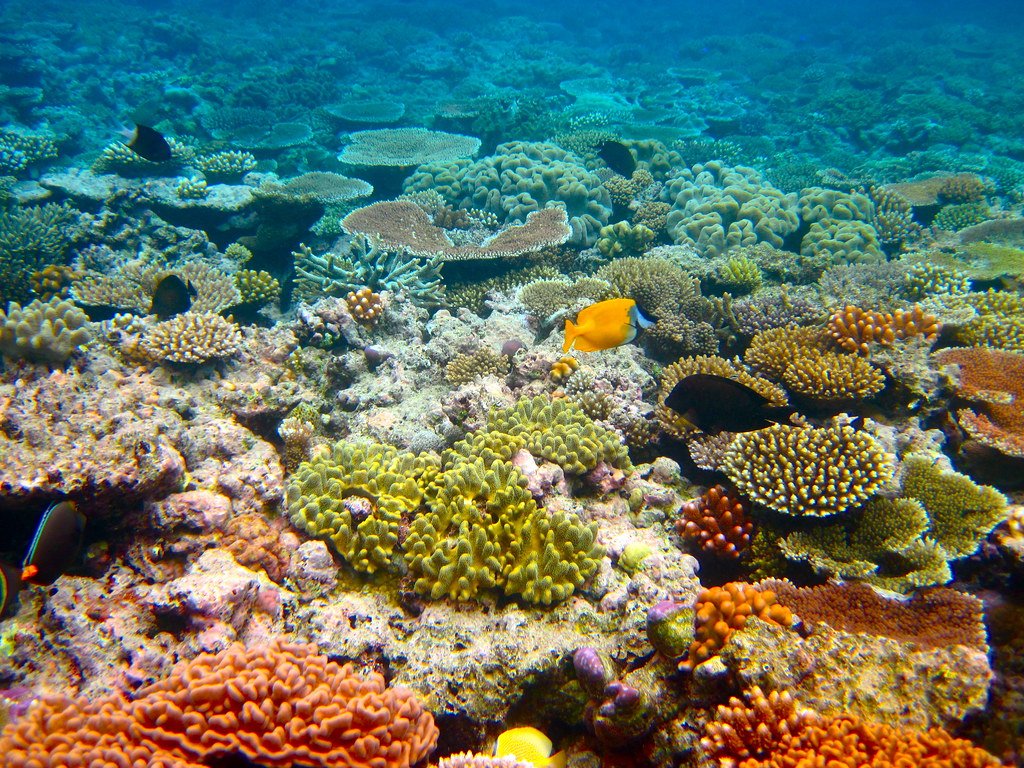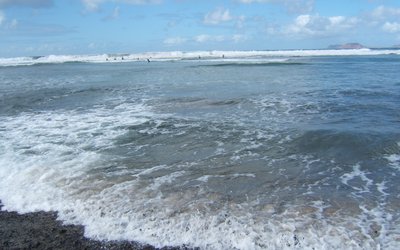Marine heat waves threaten global biodiversity and the provision of ecosystem services
May 13, 2019

The Great Barrier Reef. Globally, observed increased coral bleaching has been correlated with the increased annual number of heat wave days (photo: Kyle Taylor, www.flickr.com)
The global ocean has warmed substantially over the past century. But that’s not all. In addition to this long-term persistent warming, discrete periods of extreme regional ocean warming, called ‘marine heat waves’, have increased in frequency.
Similar to atmospheric heat waves, marine heat waves are defined as periods when daily sea-surface temperatures exceed a threshold for a number of days. In a recent study in Nature Climate Change, the global increase in marine heat wave events and the implications for marine ecosystems have been inventoried. The authors defined a marine heat wave as a period of at least 5 consecutive days when sea-surface temperatures exceed the 10% highest temperatures at that part of the ocean at that time of year. Previous research has already shown that, following this definition, the frequency and duration of marine heat waves have increased significantly over the past century across most of the global ocean: on average, there were over 50% more marine heat wave days per year in the period 1987-2016 compared to 1925-1954.
The study shows that marine ecosystems in the southwest Pacific and the mid-west Atlantic are particularly at risk. In addition, regions are at risk where rapid increases in the annual number of marine heat wave days overlap with existing high-intensity non-climate human stressors, such as overfishing and pollution. These regions include the central west Atlantic, the northeast Atlantic and the northwest Pacific. In Europe, recent marine heat waves in the Mediterranean Sea have been linked to local extinctions, decreased rates of natural carbon sequestration, loss of critical habitat and diminished socioeconomic value. Globally, observed increased coral bleaching, decreased sea grass density and decreased kelp biomass has been correlated with the increased annual number of heat wave days.
Future projections indicate that marine heat waves will become more frequent, more intense and longer lasting throughout the twenty-first century. They may affect entire ecosystems such that they disrupt the provision of ecological goods and services in coming decades. Hundreds of millions of people benefit from these services. Managing and mitigating the deleterious effects of marine heat waves on the provision of ecosystem services is a major challenge for coastal societies, the authors stress.
Source: Smale et al., 2019. Nature Climate Change 9: 306-312.








